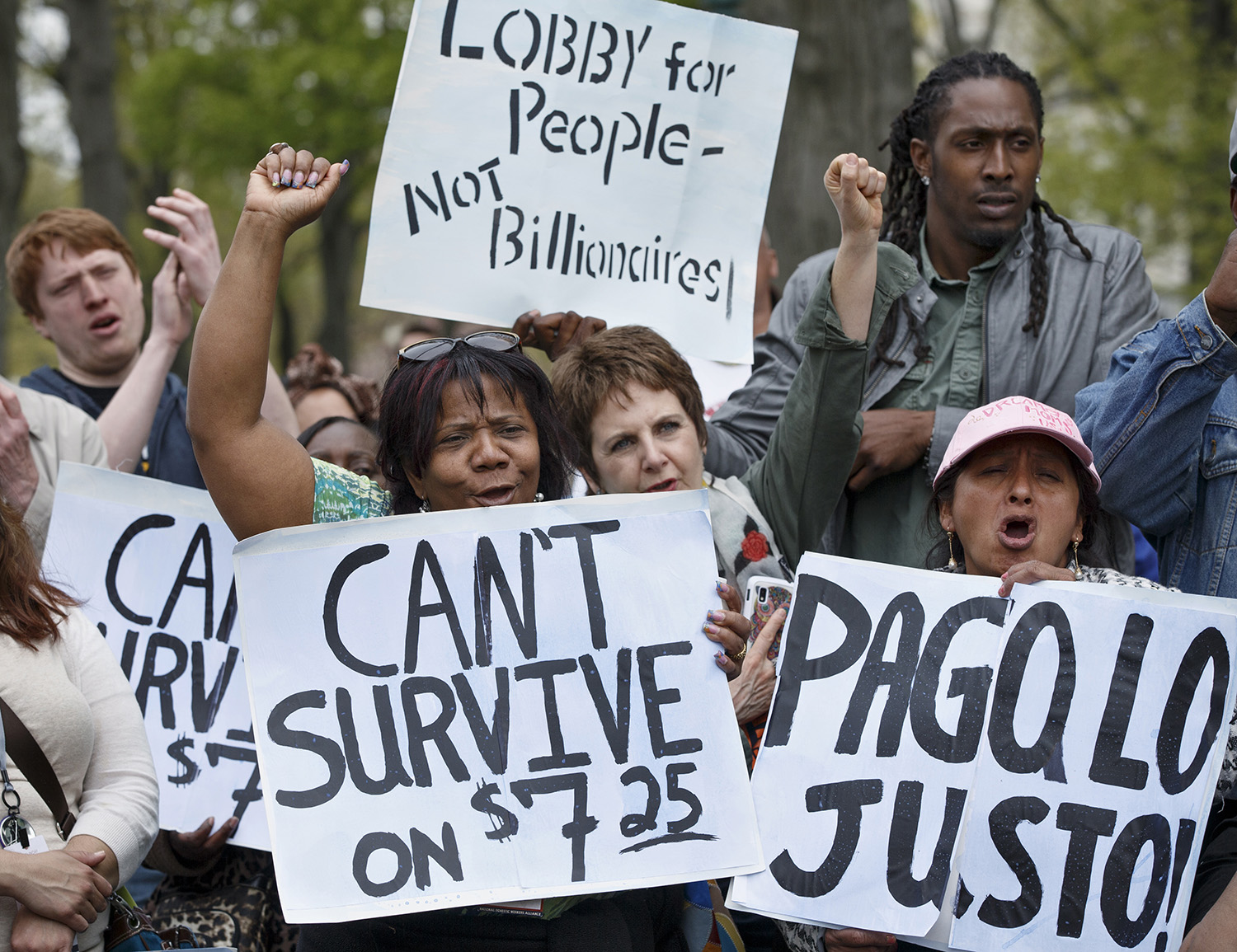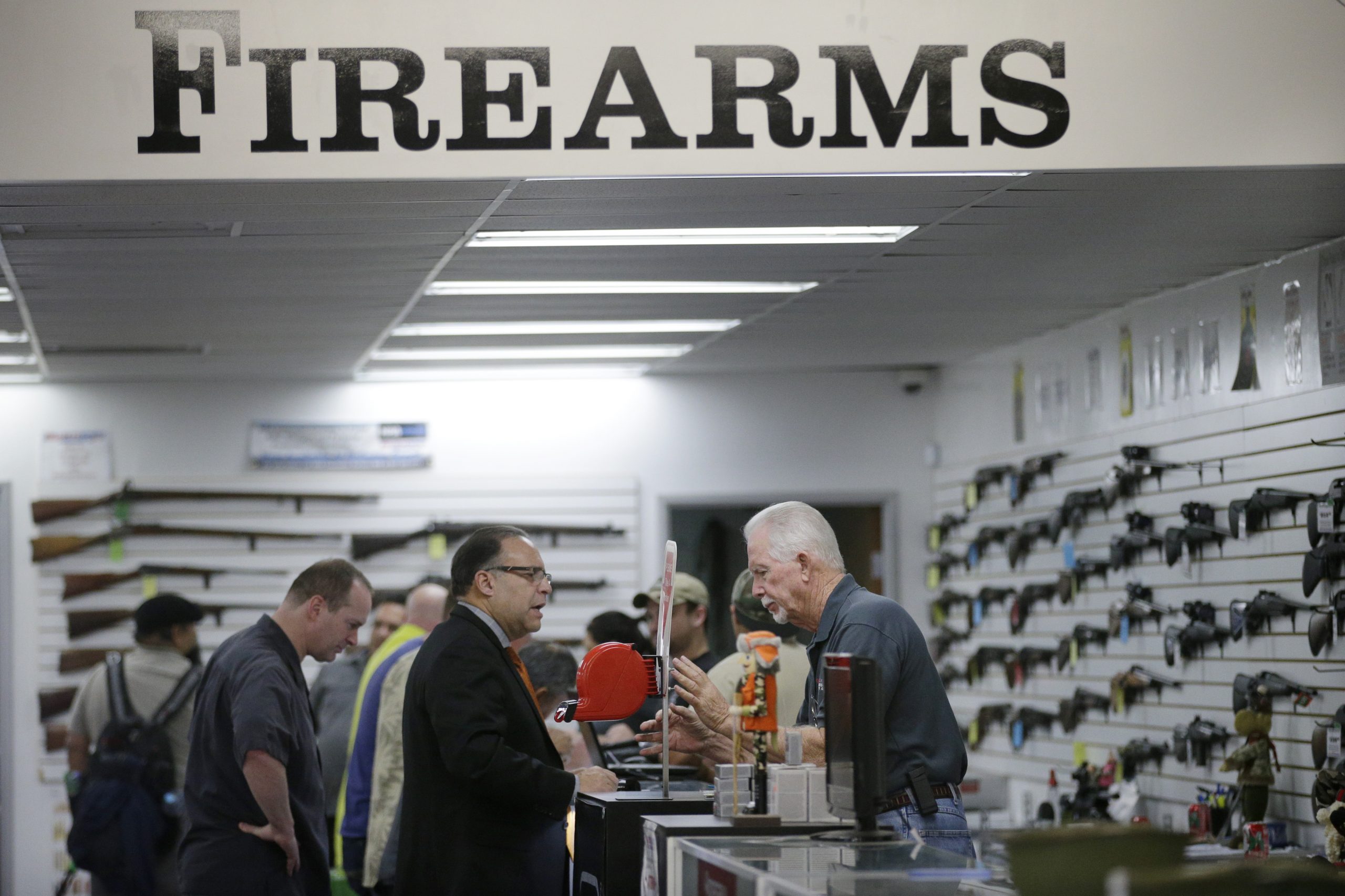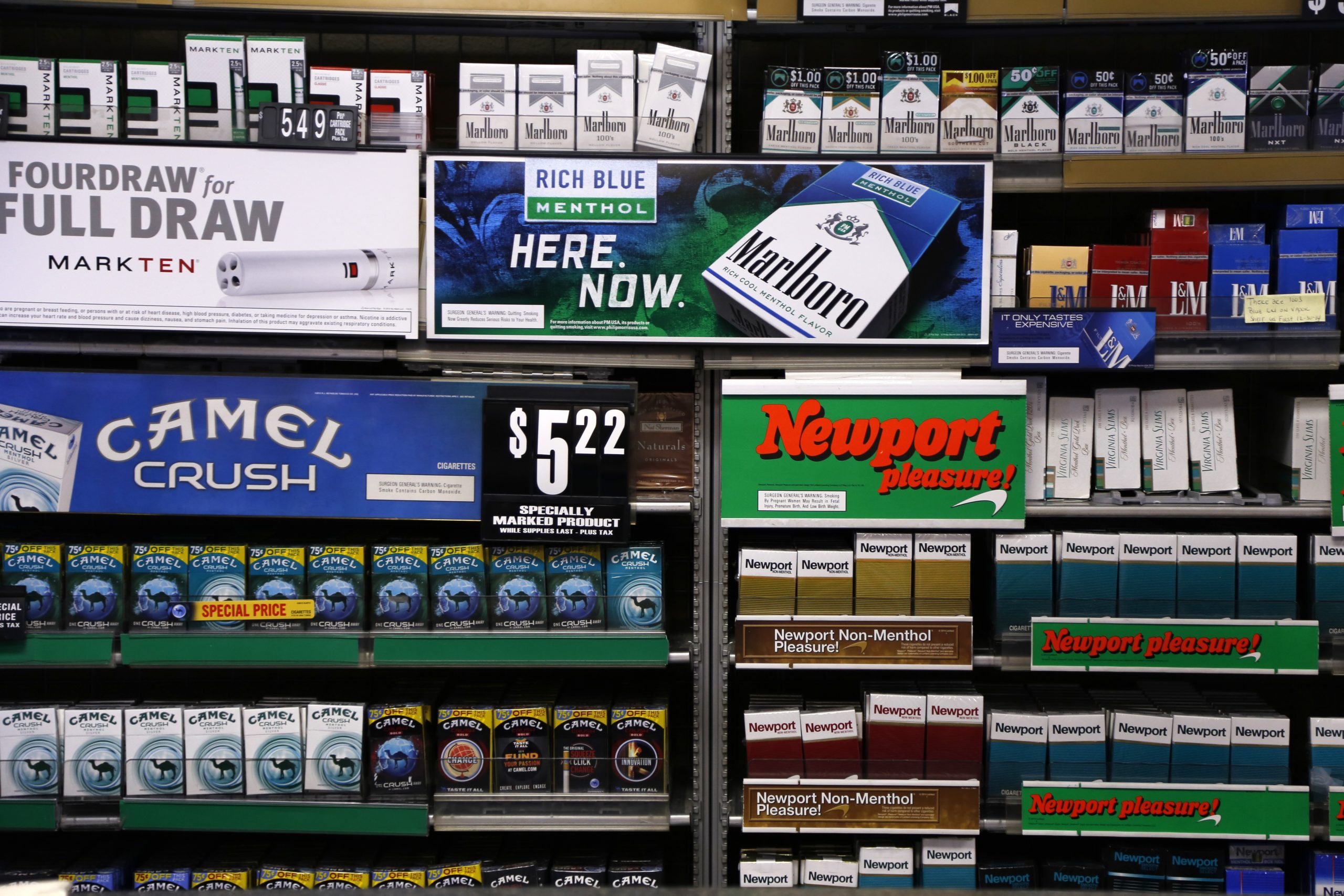While the presidential race and control of Congress are grabbing most of the headlines ahead of Election Day, voters across the country will be asked to make or repeal state laws at the polls as well.
Thirty-four states will ask their residents to vote on 154 ballot initiatives on Tuesday, including measures on whether to make marijuana legal for medical use in four states and for personal use in five. Referendums on gun control, increasing the minimum wage and increasing tobacco taxes are also up for a vote in multiple states.
A few other ballot measures are unique to individual states but still catch the eye. Among them is a measure requiring porn actors to wear condoms during filming, a carbon tax in Washington state, which would be the first in the nation, repealing the death penalty in California and repealing a repeal of the death penalty in Nebraska.
Here is the Washington Examiner’s rundown of the most important ballot measures being considered by voters around the country.
Marijuana
Pot is on the ballot in nine states on Tuesday, with Arizona, California, Maine, Massachusetts and Nevada set to decide on whether to legalize marijuana and voters in Arkansas, Florida, Montana and North Dakota voting on legalizing medical marijuana.
Morgan Fox, communications manager for the Marijuana Policy Project, said the goal of the ballot measures is to ensure that pot is regulated in the same way as alcohol. The project is in favor of all the initiatives.
“When we have good information out, people are seeing marijuana can be regulated, and that lessens all the worries and concerns,” Fox said.
He said support for legalization has grown since Colorado and Washington took the initial steps. Colorado’s legalization effort was upheld earlier this year after the Supreme Court rejected a case brought by Nebraska and Oklahoma charging that the state’s legalized weed system had to be ended because pot that’s legal in the Rocky Mountain State moves into their states illegally, violating federal law.
However, opponents also used the cases of states where pot has been legalized, namely Colorado, to criticize the legalization initiatives as public health catastrophes.
Seth Leibson, chairman of Arizonans for Responsible Drug Policy, wrote in the state’s voter guide that marijuana use among young people is 74 percent higher in Colorado than the national average. The higher potency of modern marijuana could hurt the development of youths, he said. Legalization efforts would, in effect, be a boon for dispensary owners while hurting the state’s youth.
“This proposition enriches dispensary owners at a dramatic cost to the rest of the state,” Leibson wrote. “That price is just too high to pay — for our children, for our businesses, for our health services, for our education system, and truly, for everyone else. Arizona does not need more substance abuse problems — our hands are full enough with the legal and dangerous products already available.”
Marijuana use is growing in popularity among a different age group, though. The biggest increase in marijuana use nationally between 2002-14 was among people aged 55 years or older, according to a Centers for Disease Control and Prevention study released in early September. Marijuana use in general increased 35 percent among all individuals over the age of 12.
The various marijuana measures face opponents with deep pockets, most famously Las Vegas billionaire and Republican donor Sheldon Adelson. Adelson has spent millions of dollars on the “no” campaigns in multiple states.
Minimum wage

Organized labor has led the charge for an increased minimum wage across the country. (AP Photo)
Four states have ballot measures proposing an increase in the minimum wage on Tuesday’s ballot, and South Dakota has a proposal lowering the minimum wage for young, non-tipped workers up for consideration.
Arizona, Colorado, Maine and Washington are considering raising the minimum wage in various stages over the coming years. In Arizona, Colorado and Maine, that means gradually increasing the state’s minimum wage to $12 per hour by 2020. Washington wants to go further, topping out at $13.50 by 2020.
South Dakota’s measure is meant to support a state law that keeps workers under the age of 18 from receiving a minimum wage increase that was approved by voters two years ago. It would make the minimum wage for teens $7.50 per hour instead of the $8.50 approved by voters in 2014.
Linda SerratoYbarra, communications director for the Fairness Project, says an increase in the minimum wage is a way to increase income for regular Americans. She said lawmakers have been ineffective in addressing the problems of normal citizens, and the ballot measures are a chance to enact real change.
“Ballot initiatives are enabling communities to bypass ineffective lawmakers to enact sound economic policy that works for their states,” she said in an email. “These ballot initiatives are entirely in the hands of voters and are inspiring new and infrequent voters to head out to the polls and make their voices heard.”
Organized labor has led the charge for an increased minimum wage across the country. Unions in both the private and the public sectors are among the top supporters of each of the ballot measures.
However, critics question whether increasing the minimum wage would have the desired effect for workers, as several studies have pointed out the consequences.
In 2015, the Federal Reserve Bank of San Francisco published a letter by David Neumark, an economics professor and the director of the Center for Economics and Public Policy at the University of California-Irvine, reporting that generally increases in the minimum wage have led to a decrease in employment for young and low-skilled workers.
“The overall body of recent evidence suggests that the most credible conclusion is a higher minimum wage results in some job loss for the least-skilled workers — with possibly larger adverse effects than earlier research suggested,” Neumark wrote.
A study released last week by the right-leaning American Action Forum think tank argued that increasing the minimum wage in Arizona, Colorado and Maine could kill as many as 290,000 jobs.
“While initiatives to raise the minimum wage are popular, it is important to understand that they have a cost,” author Ben Gitis wrote. “The low-wage, low-skill workers who labor advocates want to help are the very workers who bear this cost, as hundreds of thousands would be unable to maintain their current job or attain a new one.”
Other research, such as a study done earlier this year by Purdue University, suggests that fast-food prices could rise by more than 4 percent in areas where the minimum wage is increased to $15. Many minimum wage activists support an eventual rise to $15 per hour.
SerratoYbata said the push for a higher minimum wage is going to remain popular.
“People know first-hand that the economy is not working for them, their families or their communities,” she said. “That’s why these measures are popular with a diverse mix of supporters that include local businesses, low-wage workers and community leaders that are all contributing their time and energy to getting better wages in their states.”
Gun control

Maine and Nevada voters are being asked if individuals buying guns from unlicensed sellers should be subject to the same background checks as those who buy from licensed dealers. (AP Photo)
Three measures increasing security checks on gun owners are on the ballot in California, Maine and Nevada.
Maine and Nevada voters are being asked if individuals buying guns from unlicensed sellers should be subject to the same background checks as those who buy from licensed dealers. Under both initiatives, the buyer and seller would be required to meet at a licensed dealer and undergo the same background check as anyone else.
In California, voters are being asked to ban ammunition magazines holding more than 10 rounds and require them to be turned over to law enforcement and require people buying ammunition to submit themselves to the same background checks that they would receive if they were purchasing a gun.
Some of the measures on the ballot already have passed the state legislature and been signed into law by Gov. Jerry Brown. Legislation such as the ban on large magazines, mandatory reporting of lost or stolen guns and background checks during ammo purchases were signed into law during the summer, but putting them on the ballot would make them harder to repeal.
California law states any measure passed by voters can be repealed only by voters.
Craig DeLuz, spokesman for the Stop 63 Campaign, said California already has some of the most stringent gun control laws in the country and the proposal is a step too far.
Many of the proposals that haven’t been passed by the legislature, such as new procedures for enforcing laws prohibiting firearm possession by convicted felons or requiring the Department of Justice to provide information about prohibited persons to the National Instant Criminal Background Check System, were too controversial for liberal lawmakers.
“They’re seen as unworkable or not having the impact that the proponents believe they would,” he said. “This is a legislature that is by no means in the pocket of the gun lobby and if they’ve deemed these items to be too extreme or unworkable in the state of California perhaps we should listen.”
The National Rifle Association’s political wing put just $145,000 into the No campaign on California’s measure, as of mid-October. The NRA had spent more than $4.5 million trying to stop Nevada’s background check initiative as of mid-October and about $950,000 opposing Maine’s background check measure, according to campaign finance reports.
Bill Durston, president of Americans against Gun Violence, sees the California initiative and the other ballot measures in Maine and Nevada as baby steps in the right direction.
Durston and his group want guns to be treated in the United States as they are in much of Europe: banned or severely limited. Durston said the Second Amendment has been distorted by the Supreme Court’s Heller decision to allow for personal gun ownership instead of simply allowing a state militia group like the National Guard.
The 2008 Heller ruling rejecting D.C.’s handgun ban said for the first time that the Second Amendment protects a person’s right to own a gun for self-defense in the home.
He said the measures included in Proposition 63 are a small step forward.
“These are relatively non-controversial, I would say,” he said. “They’re small steps. The bigger problem in the United States is handguns. Most firearm homicides and most suicides are from handguns, and we need to stringently regulate or completely ban handguns.”
Cigarette taxes

Voters in four states are being asked if they want to increase taxes on cigarette and other tobacco products. (AP Photo)
Voters in California, Colorado, Missouri and North Dakota are being asked if they want to increase taxes on cigarettes and other tobacco products.
The California proposal would see an additional $2 per pack tax on cigarettes and an equivalent tax on other tobacco products. The revenue from the tax would go toward existing public health programs.
In Colorado, the new tax would be an additional $1.75 per pack of cigarettes and 22 percent on all other tobacco products. The $317.5 million expected to be raised by the tax increase would go toward public health campaigns aimed at getting people to stop smoking, according to the National Council of State Legislatures.
And in North Dakota, the tax would be raised from 44 cents per pack to $2.20.
Missouri voters are considering increasing taxes on cigarettes by 60 cents per pack by 2020 in Amendment 3 and increasing the tax 23 cents under Proposition A. The money raised from Amendment 3 would go toward the Early Childhood Health and Education Trust Fund, while the money from Proposition A would go toward funding transportation infrastructure projects.
Amendment 3 is backed by tobacco companies such as R.J. Reynolds, which makes Camel cigarettes. The company has given more than $12 million to proponents of the measure, according to reports. However, smaller tobacco companies oppose Amendment 3 and are in favor of Proposition A, according to the Kansas City Star.
Big cigarette companies are supporting Amendment 3 because it would attach a surcharge to tobacco products sold by companies not involved in the 1998 settlement between cigarette companies and the states, according to the Missouri Times. The ballot measures would put small companies on par with bigger companies, allowing the bigger companies to eat up their market share, the Times reported.
Whichever measure has the most votes would enter into law, if they reach the 50 percent threshold needed to pass. The measure with fewer votes will not go into effect.
The American Cancer Society Cancer Action Network is supporting the measures in California, Colorado and North Dakota, but is against the Missouri proposal, said Cathy Callaway, director of state and local campaigns. She said a tax increase of less than $1 per pack isn’t enough.
“The two proposals, neither of them are a sufficient increase in the tobacco tax,” she said. “Tobacco tax increases work when the price is increased substantially enough to motivate current smokers to quit and keep teens from starting.”
Other major measures:
- Repeal of a law banning the death penalty in Nebraska: In 2015, the Nebraska legislature passed a bill banning capital punishment as a possible sentence for first-degree murder. Referendum 426 is a chance for the voters to overrule lawmakers and reinstitute the death penalty. Nebraska has executed just three people since the death penalty was reinstated in 1976, the last in 1996.
- Repeal of the death penalty in California: Two ballot measures regarding capital punishment are on the ballot in California, one to repeal the death penalty and another to reform the capital punishment process. The state has not put a person to death since 2006. A federal judge ruled in 2014 the state’s death penalty was unconstitutional, but the ruling was overturned on appeal.
- Right-to-work in Alabama and Virginia: Both Alabama and Virginia are already right-to-work states, but the referendums would enshrine the measures in the states’ constitutions. That would make repealing right-to-work, which ensures individuals do not have to join a labor union to work for an employer, require a constitutional amendment. Repealing a constitutional amendment would have to go before the voters of Alabama and Virginia instead of through lawmakers.
- Carbon tax in Washington: The initiative, which would be the first in the nation, proposes a $25-per-metric ton tax on carbon emissions that would be phased in over two years while dropping the state’s income tax 1 percent, repealing a business tax and partially funding a tax rebate for low-income families. Supporters say the initiative is revenue neutral and a chance to take action on climate change. But the state says it could reduce revenue by $951 million by 2021, and opponents are concerned it could harm the state’s ability to govern.
- State healthcare system in Colorado: Amendment 69 changes the state constitution by establishing a healthcare system that would provide universal healthcare to all Colorado residents. The amendment would increase state taxes $25 billion annually in the first year and would create a new governance agency to administer the system, called ColoradoCare. It also would end the state’s current healthcare benefit exchange to start up ColoradoCare.
- Right to die in Colorado: Proposition 106 would change Colorado law to allow for any “mentally capable” adult with a terminal illness and less than six months to live to be medically assisted in death by a licensed doctor. The proposition requires two licensed physicians to confirm the diagnosis and the individual who wishes to die must be informed of other options, make two separate requests for the medications 15 days apart, make an additional request in writing with two witnesses present and must put in writing he or she is making an informed and voluntary decision.
- Drug price relief in California: Proposition 61 would require state agencies to pay the same prices for drugs as the U.S. Department of Veterans Affairs. The ballot initiative is the most expensive in the country, with a total of $123.8 million raised by the pro and con sides as of late October, according to Ballotpedia. The goal is to save money on drugs, stop price-gouging from drug companies and open up prescription drugs to more patients. However, opponents argue the proposition would cause veterans’ drug prices to rise, increase bureaucracy and cost the state more money.
- Safer sex in California’s adult film industry: The controversial Proposition 60 would require performers in adult films to wear condoms during sexual intercourse. Companies that produce adult films would need to pay for vaccinations, testing for sexually transmitted diseases and medical examinations as well as get state health licenses at the beginning of filming, according to the council. Privacy concerns have been raised over provisions that would allow residents of any state to report violations and would allow the courts to release the adult performers’ personal information, such as their address, to the person making the report.
